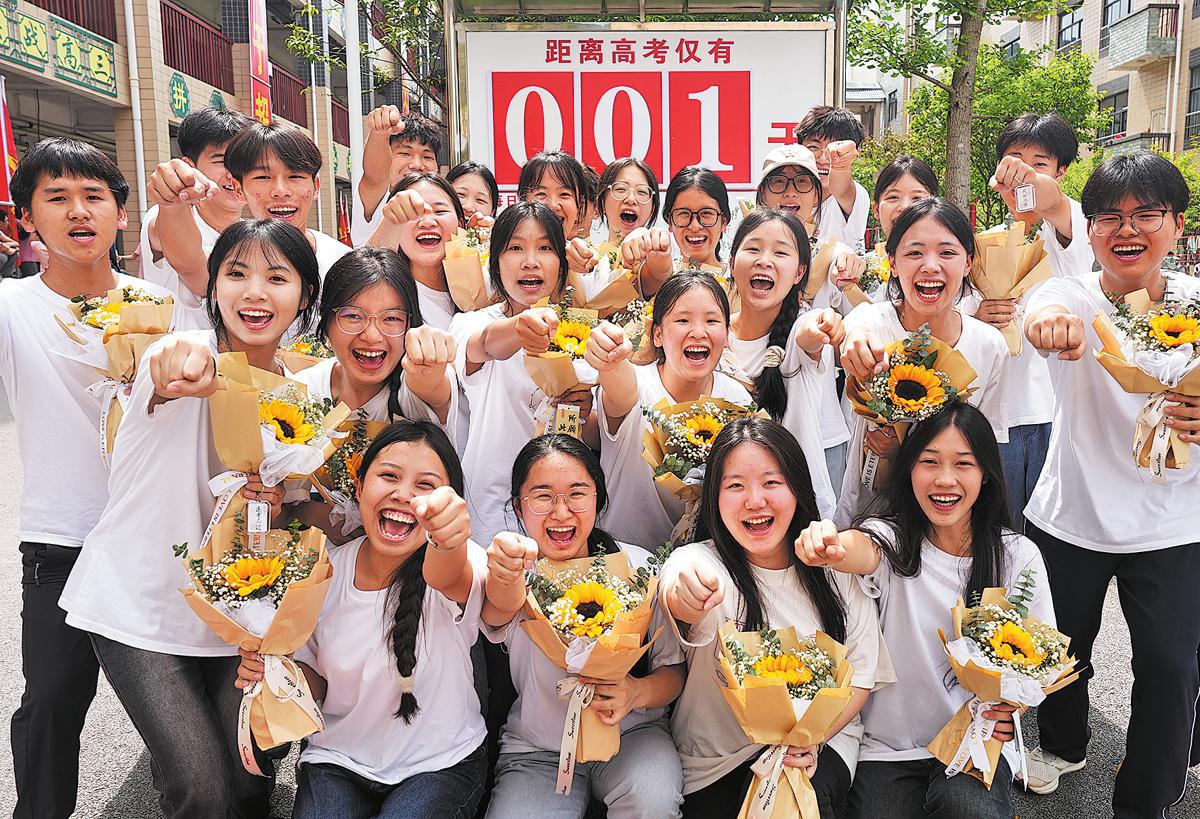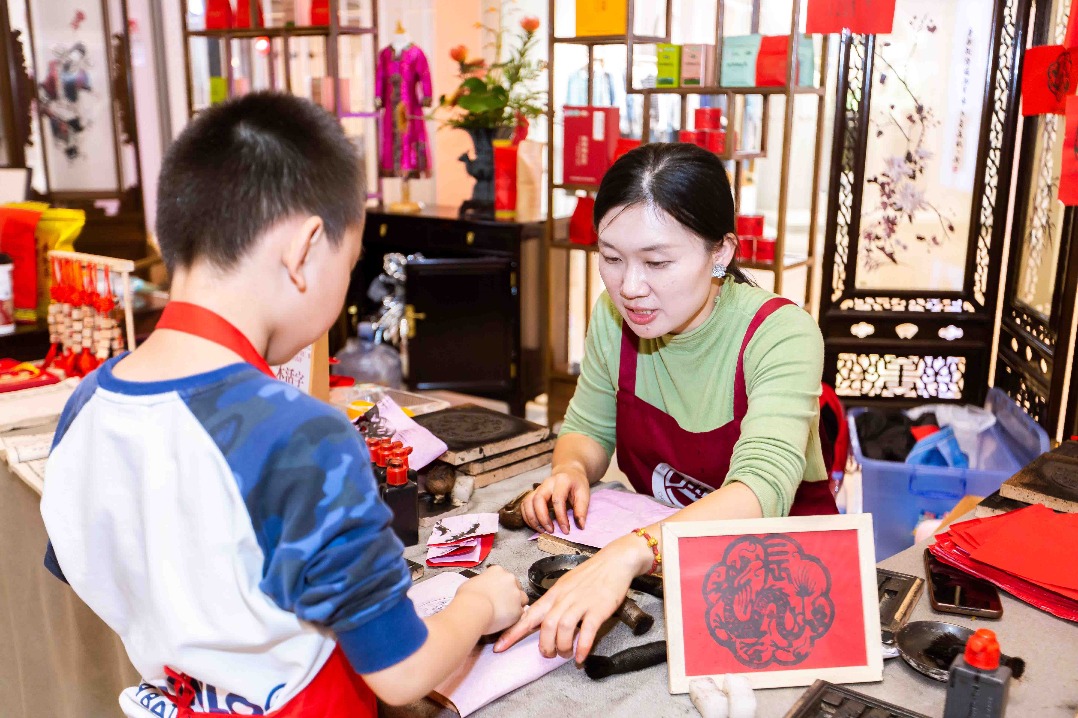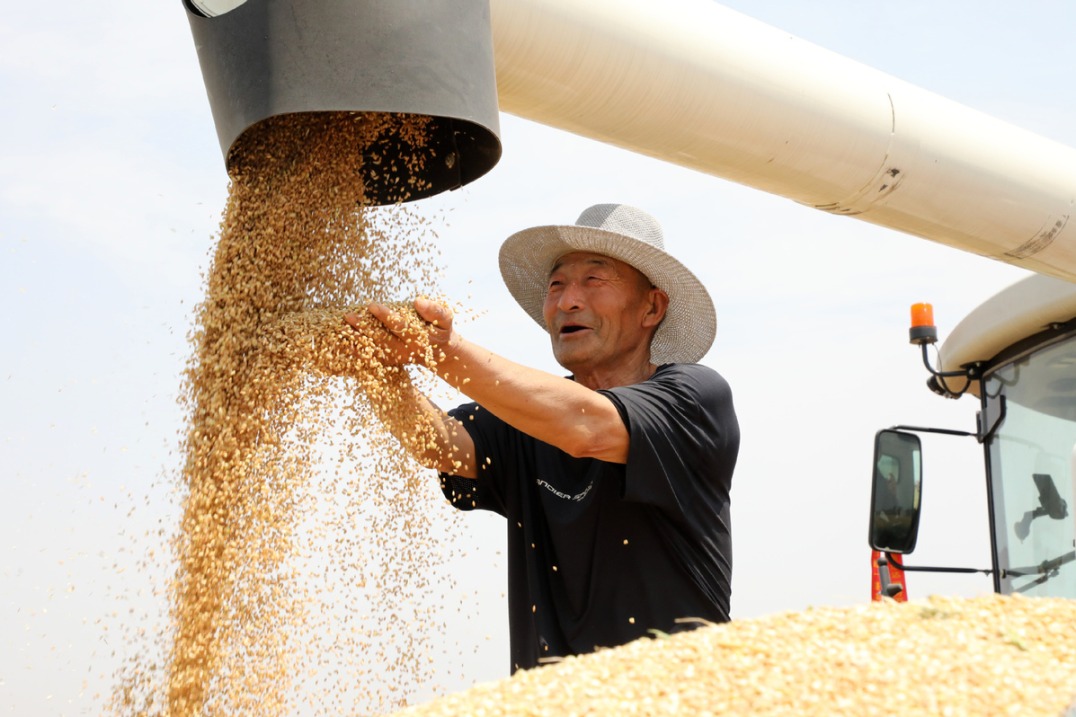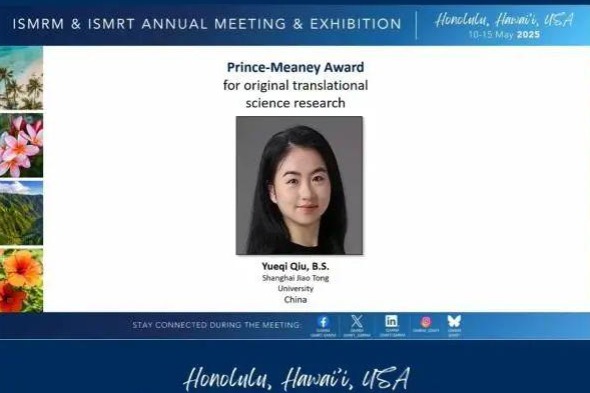Open mindset helps ease gaokao pressure


For students born after 2005, who are resolute in their efforts and yet open to diverse results, the national college entrance exam — or gaokao — is not a single, life-defining event. Instead, they see it as one significant step in a longer, meaningful journey.
This year, 13.35 million candidates will take the exam, which starts on Saturday and runs through Tuesday. The enrollment has decreased marginally from 13.42 million registered last year, marking the first drop in seven years, according to the Ministry of Education.
That young people today see the exam as a stepping stone to a good university — and not the cornerstone of their future — was evident from conversations with both high school seniors and teachers.
"I don't believe the gaokao determines your whole life," said Bian Yunkai, 17, a high school senior in Changsha, Hunan province, citing the success of his parents who did not attend elite universities. One's future depends on one's abilities and the choices one makes, he added.
Bian, who aims for a score of 620 out of 750 to make it to the Chinese University of Hong Kong, Shenzhen, based in Guangdong province, is surprisingly not a bundle of nerves before exam day. "I've studied diligently for three years. Whatever happens, I know I did my best. I have no regrets," he said calmly.
For this prudent teenager, the value of gaokao lies in its potential to facilitate access to better platforms and ensure encounters with more talented peers for future growth. Nevertheless, he has maintained an unrelenting preparation schedule, rising as early as 6:30 am and returning home from school past 11 pm after attending self-study sessions.
"Whenever I feel low or am under too much pressure, I dabble in sports, listen to music, or just sleep," he said. "Sometimes I even talk to myself for self-encouragement."
Zhang Junzhe, 18, one of Bian's classmates, agrees that the national college entrance exam is not the be-all and end-all.
"No single event can define a person's entire life," he said, highlighting the exam's narrow focus on academic skills. "Viewing the gaokao as 'all there is' idealizes an exam-oriented education system, which lacks real-world perspective."
Zhang, however, admitted that he feels both excited and slightly nervous about taking the exam, as it is an "upward channel" for higher education. While he said he would like to pursue a major at Hunan University, one of the country's top academic institutions, he is also prepared for the worst.
The teenager suffered from a pneumothorax (collapsed lung) incident during his senior year and could not devote his full attention to preparing for the gaokao. "Whenever I was in better shape physically, I wanted to test my limits," he said, adding that he attended the late-evening study sessions as long as his health permitted.
Zhang, who often records his journey through photography, which also helps him relax, said, "The gaokao may seem like a big hurdle, but if I grit my teeth and forge ahead, it will become a stepping stone."
This evolved mindset is not limited to students.
Yin Guiling, a high school teacher in Shenzhen, highlighted the generational contrast. "For those of us born in the 1990s, the gaokao seemed like the 'only' path," she said. "But students today, who are shaped by the internet, see diverse possibilities. They have a much broader horizon and profound self-awareness that their previous generations lacked."
Even if the gaokao doesn't go well, these students know that they will strive hard and find success in life, Yin said, adding that this is especially true for students in first-tier cities.
According to the teacher, some of her students already have tangible "fallback options", and a few are already building income streams through skills like digital art.
Lang Shiyuan, a high school teacher in Changsha, also confirms this broader acceptance of the gaokao not determining the future of students. He said that students hope for good results, but generally accept that they have multiple paths to choose from if their scores fall short.
"People excel at many things beyond academic pursuits," Lang said, advocating a balanced approach to the exam and life's broader challenges. "Do your best, then let destiny take its course."
Despite the paradigm shift in perspective, the importance of the gaokao isn't dismissed. Teacher Yin strongly emphasizes the exam's enduring role as a critical gateway, especially for those who aspire to build careers in specialized fields.
"Failing to clear this hurdle significantly narrows future opportunities," she said, urging students to respect it as their "first major challenge of self-transcendence".
zoushuo@chinadaily.com.cn
- Open mindset helps ease gaokao pressure
- Greetings sent to Polish president on his election
- Xi calls for greater ethnic unity, religious harmony
- China's railway passenger traffic exceeds 4.31 billion in 2024
- Three injured in Wuhan University stabbing incident
- Former Jiangxi official expelled from the CPC





































